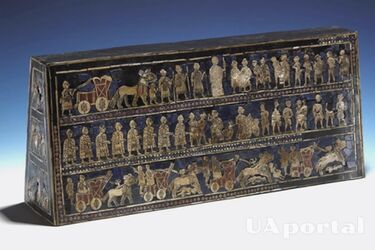Scientists discover that humans learned to crossbreed animals 4500 years ago: remains of "kunga" found

Thanks to various sources, it is known that the wealthy inhabitants of Mesopotamia 4500 years ago used a special kind of riding animal called kunga. These animals were used in ceremonies, diplomatic events and wars. However, researchers still did not know the exact origin of these animals.
This is reported by Science Advances.
A recent DNA study has revealed that kunga were the result of crossbreeding domestic donkeys with hemippi, a species of Syrian wild donkey that has become extinct. This is the first confirmed hybrid breeding of animals in history.
The remains of a 4500-year-old Kunga were discovered in the Umm al-Marra funerary complex in modern-day Syria. Genome sequencing helped to realize that they corresponded to unknown species of horse. The researchers compared genome samples from a wild Syrian donkey found in Göbeklitepe, 11,000 years old, with the genome of two modern-day hemippis.
The results showed that kungas were hybrids obtained by crossing domestic donkeys and hemippos. Scientists believe that these may be first-generation hybrids, as interspecific hybrids of ungulates are usually infertile.
According to scientists, the Sumerians created kunga to get a faster and stronger animal than the horse and donkey, but more obedient and manageable. However, since kunga were infertile, it was difficult to breed them. They were eventually replaced by horses brought to the region from the Pontic steppes between the Black and Caspian Seas.
See also: Decorated with images of flowers, lions and corals: 800-year-old tomb found in China
According to historical records, these horses were quite expensive: six times more expensive than donkeys. Large kunga were used to transport vehicles of "nobles and gods," and their size and speed allowed them to be used to tow four-wheeled military carts that preceded chariots.
"The Sumerians actually created these hybrids through bioengineering. The kunga were the first hybrids in history, as far as we know. The Sumerians had to cross animals every time they wanted to get a kunga. That is why kunga were highly valued," the researchers explained.
As a reminder, scientists found the mummy of a 2300-year-old boy in Egypt who was buried with 49 amulets.
If you want to get the latest news about the war and events in Ukraine, subscribe to our Telegram channel!
